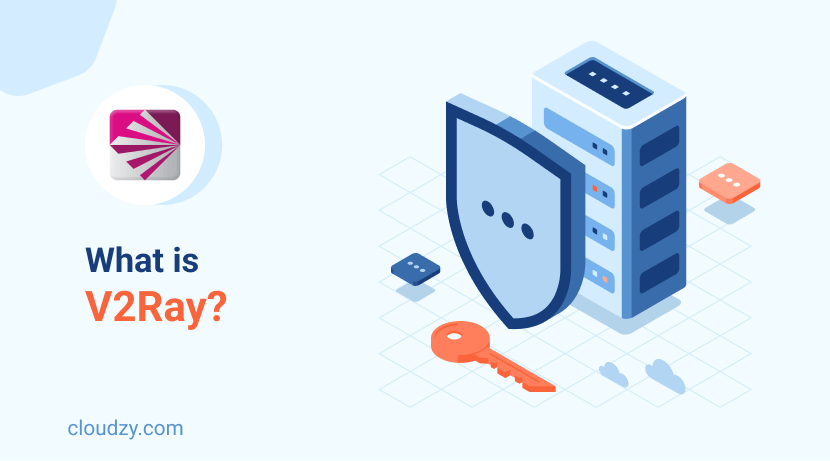There is little doubt that the global climate of the online world has found strong tendencies for censorship and limitation of users in recent years. Not only are autocratic governments around the world tightening their grip around their Internet spheres, but we are also seeing western countries moving in this direction. Even worse, the restriction of internet content is no longer a top-down process. Nowadays, we are witnessing a bottom-up approach of restriction, exemplified by the geo-blocks that content companies impose on some or all of their content in a particular region.
It is difficult to say whether these developments are ultimately good or bad for the online world. On one hand, censorship and limitations on user behavior can help to prevent harmful or illegal activity online. On the other hand, such restrictions can also stifle creativity, free speech, and innovation. Additionally, the rise of bottom-up approaches to internet content restriction raises concerns about who gets to decide what content is accessible to whom, and for what reasons. Ultimately, it will be up to individuals, organizations, and governments to navigate these complex issues and find a balance that promotes both safety and freedom in the online world.
Despite this, even VPNs are the target of mass-scale attacks by online censors. Although VPNs are seen as a solution to online censorship, they too are vulnerable to mass-scale attacks by censors. Many commercial VPNs available in the market can be easily shut down. However, V2Ray, developed by Chinese developers who face severe internet censorship, has proven to be difficult to shut down. The question remains: what is V2Ray and how does it manage to remain operational during internet blackouts?
What is V2Ray?
V2Ray is a VPN, but it’s not just that. Developed initially by anonymous Chinese coders to circumvent the internet restriction in their native country, V2Ray has since proved incredibly efficient at breaking through Internet censorship worldwide.
There are rumors that part of the development team for V2Ray is contributed to by the same anonymous Chinese developer who originally developed the notorious SOCKS5 protocol as part of the ShadowSocks proxying system. This is mainly because V2Ray not only derives a lot from SOCKS5 but also uses it as one of its protocols. Either way, both SOCKS5 and now V2Ray have proven themselves capable of breaching through the infamous “Great Firewall of China,” a testament to their ability to operate even under the most severe restrictions.
V2Ray uses several different protocols to allow the establishment of a secure and reliable VPN connection. These protocols include the new and exclusive VMess protocol and the QUIC, mKCP, TCP, Websocket, Freedom, MT Proto, Shadowsocks, Blackhole, and Dokodemo.
V2Ray is itself a subsidiary of the larger Project V project. This project is dedicated to creating tools to go around internet blocks on a global scale, with more programs coming.
Disclaimer: The information contained in this blog post is for educational purposes only. Cloudzy does not encourage any one to use these technologies for illegal activity.
V2Ray’s Use cases and Benefits
We all know the everyday use cases of a VPN, such as privacy, security, and censorship circumvention, but how do these use cases apply to V2Ray and its protocols? Let’s see:
Advanced Censorship Circumvention
As mentioned before, V2Ray is explicitly designed not to fulfill the generic use cases of a VPN, but rather act as a braking force in the most challenging internet restriction situations possible.
V2Ray VPN is easily capable of unlocking free internet access in normal blockages. However, normal blocks are also fixable using any other VPN. Where V2Ray and its VMess protocol truly shine is under cases of firewall attacks on VPN servers and ports. In these scenarios, most VPNs are blocked as well. However, the recent operational history of the VMess protocol shows that it has managed to stay online.
Privacy and Security
The lack of focus from V2Ray VPN on privacy does not mean it does not excel at it. Almost all the protocols used as part of the V2Ray client are inherently great at protecting your data through encryption and masking. This is particularly true about the VMess protocol, which uses several intertwined encryption protocols at once to encrypt your data and make the original encryption undetectable by ISP firewalls.
Overall, users are unlikely to resort to using V2Ray for privacy reasons. But if they do, the VMess protocol has them covered.
Remote Access Support
V2Ray has incredible synergy with remote access protocols. It can be used as part of a remote connection to easily be set up on the server and even as a separate VPN connection on the remote host itself. This way, you can easily establish a fast SSH V2Ray connection and enjoy it on your remote host, or host it there and connect to it from your local devices. The SSH connection can also be used as an additional solution for a fast V2Ray connection.
What Are V2Ray’s Protocols?
Several different V2Ray protocols are generally supported as part of the program. You can alternate between these protocols as the need dictates. While V2Ray is largely based on the Shadowsocks protocol, it differs from it significantly because it supports multiple protocols as opposed to just one. Apart from the primary VMess protocol, which is based on SOCKS5 with notable improvements, there are five other protocols that you can use as part of your V2Ray VPN:
Freedom
Freedom is the first of these protocols. It is named so because it can easily breach the world’s most rigid internet restrictions. It’s been reported that Freedom has managed to break through severe censorship in different situations in these last years. It works by passing all outbound UDP and TCP packets to their original target, but it does so stealthily.
Despite its excellent capability as a protocol for breaking through censorship, it does not offer the best speed. Still, it has perfect connection privacy and security. But I would not recommend using it unless you can’t access the free web otherwise.
Dokodemo Door
If you all want a transparent proxy to go around basic geo-blocks, then Dokodemo is for you. It works by inbound tunneling connections to the specified destination of the connection. You can easily access unavailable content in some region by using the protocol to connect to a transparent proxy server hosted in another supported country.
Dokodemo is also great as a speed proxy. It offers high-performance packet transfer speed making it ideal as a basic proxy with great download and upload speed.
MTProto
MTProto is almost exclusively used to create proxy servers for Telegram, a famous messaging app worldwide. Telegram is known for its integrity and the fact that it has refused to share its users’ data with oppressive governments. With a focus on privacy, Telegram has faced wide-scale bans against itself in many countries.
MTProto is designed to create proxy servers that are subsequently accessible using Telegram’s built-in proxy interface. Recently, WhatsApp also faced some bans, so they introduced a similar native WhatsApp proxy that works quite similarly to the model used by Telegram.
Socks
The suitable old SOCKS protocol, which is the direct predecessor to the SOCKS5 protocol, which itself is the arguable predecessor to V2Ray, is also accessible as part of the V2Ray software and protocol list. There’s no reason to use this protocol over the next option, introduced below, unless you have a particular affinity for the old SOCKS protocols.
Some users believe that the old protocols offered a more smooth experience, but little evidence supports this claim. SOCKS5, SOCKS4, and SOCKS4.A are all supported.
Blackhole
Black Hole is essentially the most advanced and the most useful protocol out of all the V2Ray protocols. It allows you to block all predefined connections you deem dangerous to your network. This way, you can easily create an isolated network that is immune to all potential spyware, targeted ads, and even ports through which threats are likely to come in.
Blackhole is also on par with the freedom protocol when it comes to performance against censorship. It can easily remain undetected and help users in regions with censorship to access free Internet via a powerful V2Ray plugin.
FastSSH V2Ray
By far the fastest way to get a free V2Ray VPN is to use the FastSSH V2Ray website. The website offers three different locations, and all users can get a free account with one of these servers onboarded already. There is a limit on the number of accounts that can be made every month, usually 3000 per server location. But if you got left out, you can simply wait until new slots are allocated.
If on the other hand, you want to self-host and have your own VPN, you can follow the next section.
How to Install V2Ray?
Now that we have covered V2Ray’s definition and its performance through its protocols, it’s finally time to learn how to install it on a server and use it as a personal, private V2Ray VPN that can help us break through online censorship. Simply follow the steps, and you will finish it in no time.
Prerequisites
The only prerequisite to creating a personal V2Ray VPS server is a virtual private server that allows you to remotely connect to the server, download, install and configure the V2Ray VPN server, and easily connect to it using your local devices. For coding and running a server, Linux VPS instances are the best.
Don’t know where to get a reliable and fast VPS? Cloudzy offers some of the best Linux VPS servers on the world wide web, with low prices, diverse locations around the world, excellent security, as well as support for cryptocurrency for people who cannot use conventional western banks. Get your hands on a cheap, reliable, fast, and tailored Ubuntu VPS designed to act as a server host, or choose your own Linux VPS distro!
The majority of Linux-run servers are using Ubuntu; why not you? Discover why everybody loves Ubuntu — get an optimized Ubuntu VPS The Obvious Choice
The Obvious Choice
Step 1: Update the VPS, Install Curl and Begin the V2Ray Installation
Enter the following two lines to upgrade the server:
sudo apt-get update
sudo apt-get upgrade
Once the update is over, use these lines to install Curl. If you already have it, simply skip the first command and put in the second one only:
sudo apt-get install curl -y
bash <(curl -s -L https://git.io/v2ray.sh)
Step 2: Configure the V2Ray Installation
The second command you entered will start the installation process for V2Ray. You should now see a prompt showing you the different components of V2Ray, and you will also be prompted to choose the version you want to install:
- V2Ray executable: /usr/bin/v2ray/v2ray:
- Config file: /etc/v2ray/config.json
- Utility: /usr/bin/v2ray/v2ctl
- IP data file: /usr/bin/v2ray/geoip.dat
- Domain data file: /usr/bin/v2ray/geosite.dat
Once prompted on which version you want to install, you will have the choice between pressing 1 or 2. It does not make a difference which one you choose. So choose either and press Enter.
Now, once again, V2Ray will ask another prompt. The prompt is in Chinese, but what it’s asking for is the port number of your server. So put in your port number when you see the following question:
请输入 V2Ray 端口 [1-65535]
(默认端口: 64533)
Step 3: Configure the Optional Installation Prompts
Now you will receive two new prompts consecutively. The first asks if you also wish to install an ad blocker alongside your V2Ray VPN. Here press Y for yes and N for no. The second prompt is also an optional installer. This time it’s the Shadowsocks client. If you plan on using Shadowsocks, press Y. Otherwise, press N.
Step 4: Finalization
Once you have passed the optional Installation process, you will be asked to press Enter to finalize the installation process according to the configurations you made. It will place the following files as config into your repository once finished:
- systemd: etc/systemd/system/v2ray.service
- SysV: /etc/init.d/v2ray
Once the Installation is complete, you will get a prompt showing the configuration choices you made, your server URL and your QR code.
You can edit the above directories to personalize your server and make the V2Ray VPN tailored to your liking. To start, the V2Ray VPN run this command:
sudo nano /etc/init.d/v2ray
Now you can easily use a V2Ray VPN that will get you through all sorts of internet censorship firewalls!
Conclusion
With increasing pressure on the free internet access around the world, reliable VPN options are becoming more scarce than ever before. In this dim situation, V2Ray is a perfect example of a VPN option that continues the struggle for free internet access.
The flexible nature of V2Ray allows you to get easy pre-configured options like fast SSH V2Ray, or go fully independent and self-host!
FAQ
What Platforms Does V2Ray Support?
The official V2Ray client is only supported on Android, Windows, and Linux Kernel distros. There is a possibility of future expansion into iOS, etc.
What is the Best OS for a V2Ray Server?
Since Linux is practically designed to be used as a development, coding, and networking OS, I would say Linux Distros specializing in this aspect. CentOS and Ubuntu, are the best.
Is V2Ray Safe?
Since V2Ray is designed to not only go around the heavy censorship in China, but also to combat privacy invasions of the government there, I would say V2Ray is more than safe for the average user.

![Use SSH to Connect to a Remote Server in linux How To Use SSH to Connect to a Remote Server in Linux?[2023 Edition]](https://cloudzy.com/wp-content/uploads/Use-SSH-to-Connect-to-a-Remote-Server-in-linux-420x234.png)



One thought on “What is V2Ray VPN? An In-Depth Introduction and Installation Guide”
hi!,I like your writing so a lot! percentage we keep in touch more approximately your post
on AOL? I require a specialist on this space
to resolve my problem. May be that is you! Looking ahead to see
you.